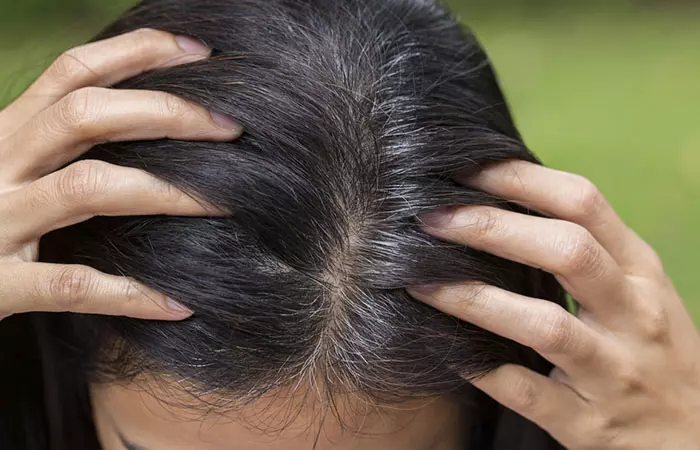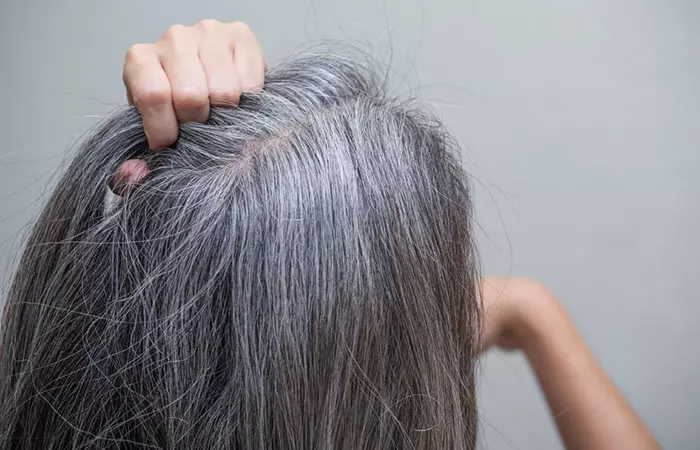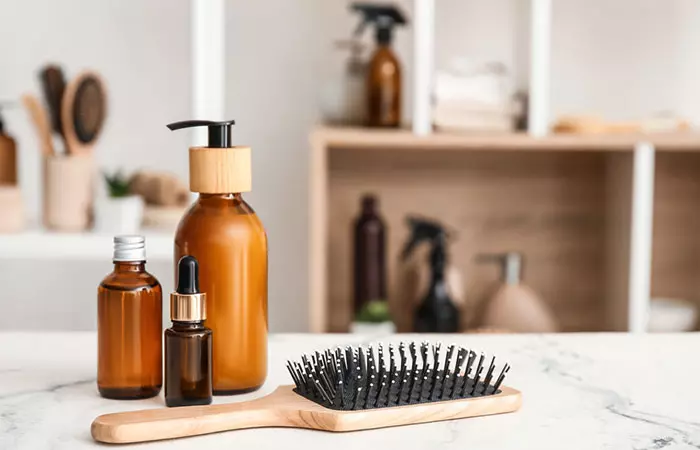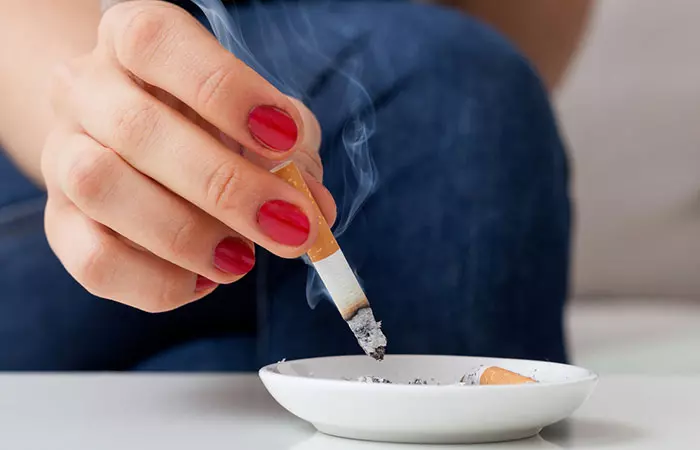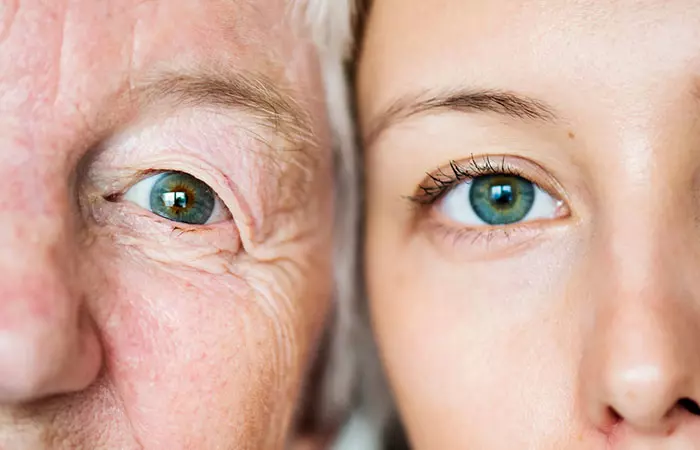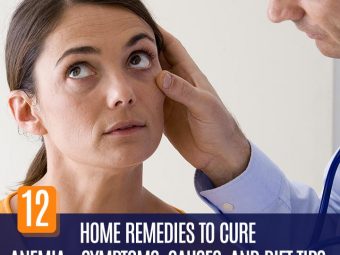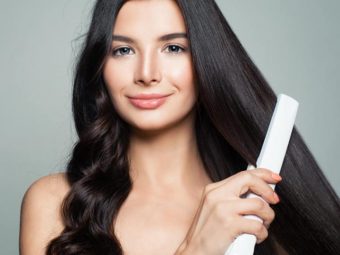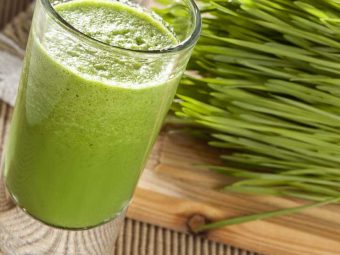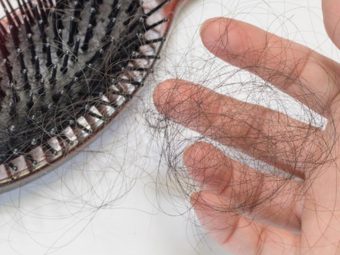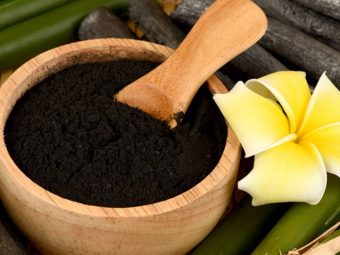11 Causes Behind Early Graying You Never Suspected
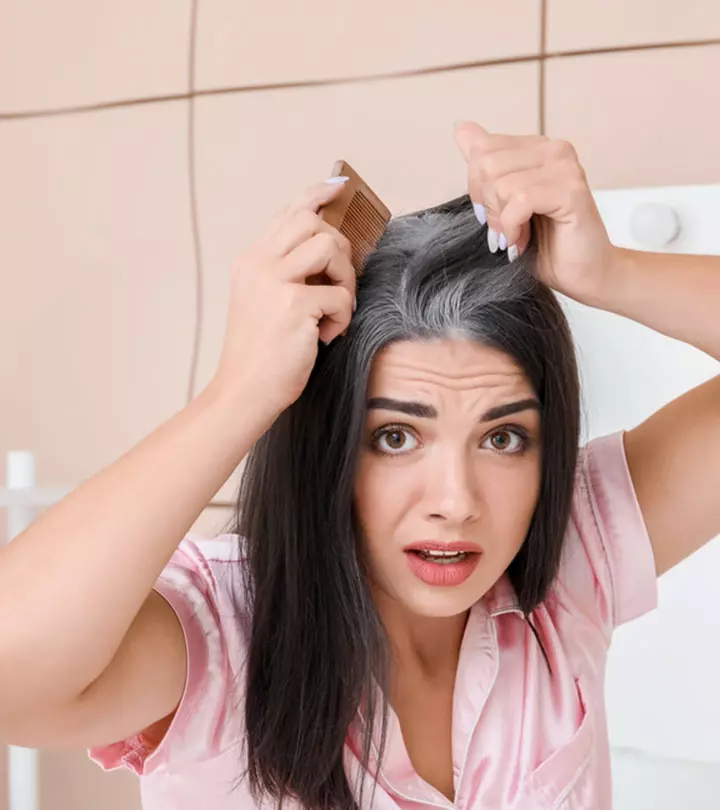
Image: Shutterstock
Most people start to panic at the first appearance of gray hair on their head and you can’t really blame them. Your natural reaction to your first gray hair could be plucking it away and refusing to acknowledge its very existence. But that is only the beginning of the endless gray hair sprouts! Soon there will be ‘Grey hair: Part 2’, ‘Grey hair: Returns’ and ‘The Revenge of Grey Hair’! Gray hair is by far considered a natural part of the aging process. However, it can also occur due to several reasons besides aging. Knowing them will help you understand the process of hair graying better and seek appropriate solutions. Read on to know them all.
In This Article
1. Strong Medications
Some kinds of medications have been linked to premature graying as a side effect. Medicines used for chemotherapy, certain antibiotics, and antimalarial medications are some examples of strong medicines that may cause hair to turn gray earlier than expected.
2. Autoimmune Diseases
Autoimmune disorders like alopecia areata and vitiligo could affect the pigmentation of hair follicles and lead to premature graying (1). These disorders sometimes cause the immune system to attack the body’s own cells, including the melanocytes that are responsible for hair color production.
3. Ethnicity
Studies have shown that people of certain ethnic backgrounds, such as Asians and Africans, tend to experience graying at a later age as compared to those of European descent (2). However, this does not mean that premature graying does not affect people from diverse ethnic backgrounds.
4. Chronic Illnesses
Chronic illnesses, like diabetes and thyroid issues, have been associated with premature graying (3). These conditions affect various bodily functions, including hair health and even pigmentation. Imbalances in hormone levels and oxidative stress can also contribute to the early depletion of melanin.
5. Hormonal Imbalances
Imbalance of hormones in the thyroid or pituitary glands can disrupt melanin production and the hair growth cycle (4). This can also lead to various health problems including premature hair graying.
6. Inflammation
Inflammation is a natural response of the body to injury or infection. However, chronic inflammation can have detrimental effects on various bodily functions, including hair pigmentation (6). Inflammatory conditions like psoriasis and eczema have also been linked to premature graying (7).
7. Using Improper Hair Care Products
Using harsh hair care products, such as shampoos containing sulfates, and applying excessive chemical treatments on your scalp can strip the hair of its natural oils and damage the hair shaft. Over time, this can weaken the hair follicles and lead to premature graying.
8. Vitamin Deficiencies
Deficiencies in certain vitamins and minerals can also contribute to premature graying. Vitamin B12, vitamin D, and minerals like copper and zinc are essential for melanin production and the overall health of hair follicles (8). A lack of these nutrients can accelerate the graying process.
9. Smoking
Smoking has long been associated with various health issues, and premature graying is one of them. The harmful chemicals in tobacco smoke can damage the DNA of hair follicles, leading to early graying (9).
10. Stress
Chronic stress can affect the body in numerous ways, including premature graying. Stress triggers the release of cortisol, which can disrupt the normal functioning of hair follicles and melanin production.
11. Genetics
While it’s true that genetics play a key role in determining when hair grays, certain genetic conditions can contribute to premature graying. Disorders like Werner syndrome and premature aging syndromes can cause individuals to have gray hair at an early age (10).
How To Take Care Of Your Natural Hair Color
When it comes to keeping your natural hair color vibrant, it’s important to take a holistic approach. Treat your locks with love from within by nourishing your body with a balanced diet. Load up your plate with nourishing leafy greens, juicy fruits, lean meats, and wholesome nuts and seeds. These goodies provide your hair follicles with the vital nutrients that promote melanin production and keep your color looking fabulous. Remember, a healthy diet is the secret ingredient to maintaining your gorgeous natural hair color.
We need to embrace natural and nourishing hair care practices to prevent breakage and preserve our hair’s natural color. Remember to protect your hair from environmental damage by wearing a hat or using UV protection sprays when exposed to the sun for prolonged periods. Lastly, managing stress levels and adopting a healthy lifestyle can also contribute to maintaining your natural hair color. By implementing these tips, you can keep your natural hair color vibrant and healthy for longer. So, what is your secret to keeping your natural hair color intact for long? Let us know in the comments section!


